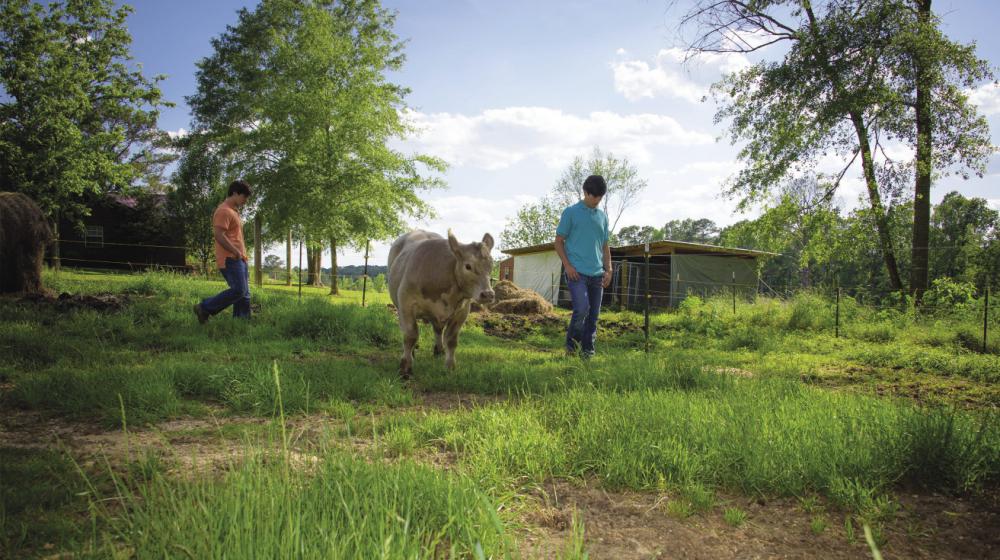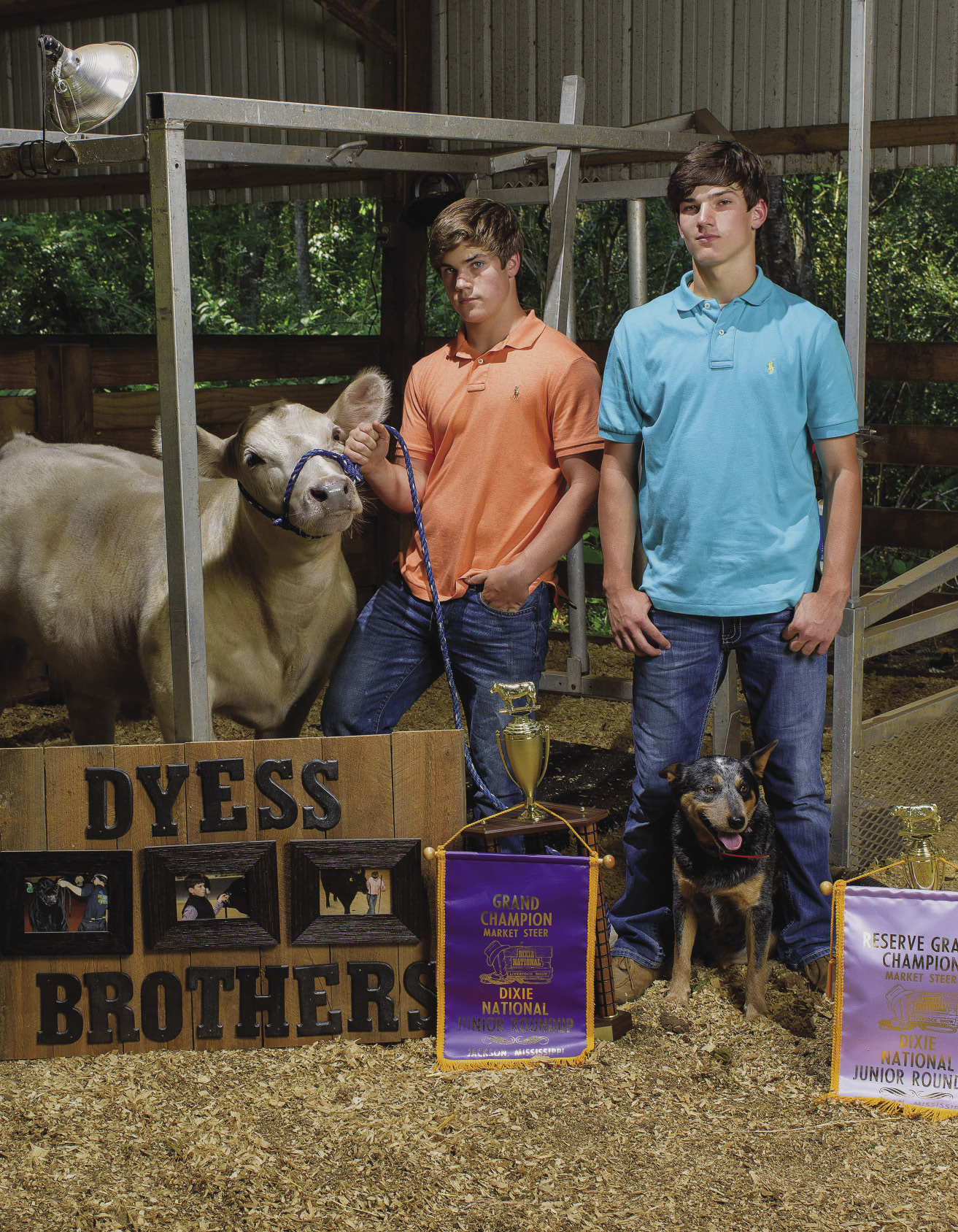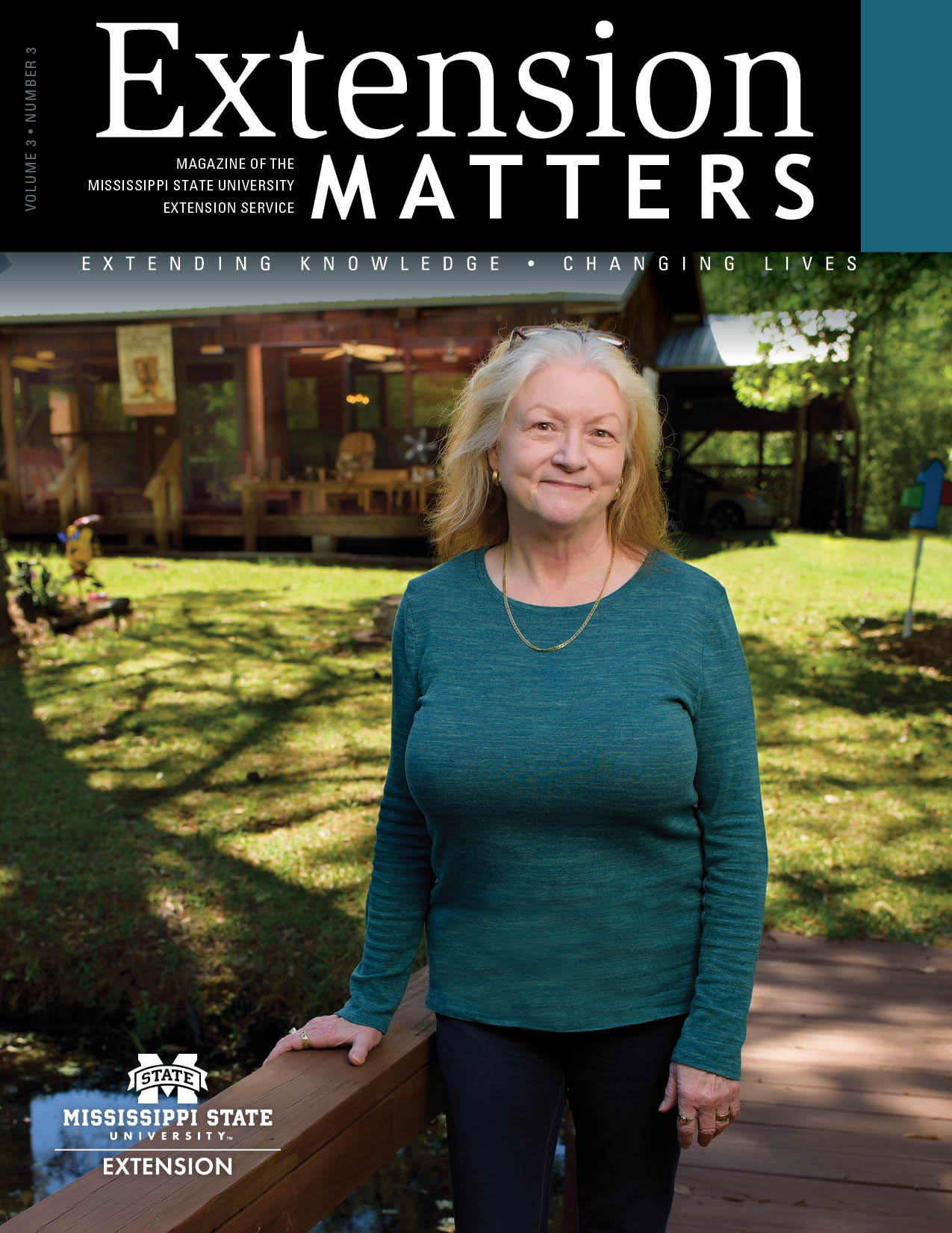All in the Family

Livestock Projects Take Team Commitment
Story by Nathan Gregory • Photos by Kevin Hudson

Cayleb and Landry Dyess are two of only a handful of siblings ever to have two grand champion animals auctioned in the same Dixie National Sale of Champions, but they prepare for each event the same way as every 4-H’er who competes.
They start getting ready for the next show the day after they come home from the last one.
“We have another set of animals in the barn already,” said 16-year-old Cayleb after the 2017 sale. “It’s a 365-day deal.”
The Dyess family is the epitome of a 4-H family. Landry, 15, and Cayleb began competing in livestock shows when they were 8 years old. Their parents, Brannon and Angie Dyess, say the brothers have been going to shows and rodeos “since they were old enough to walk.” Their older brother, Daylan, also showed livestock frequently as a 4-H’er before he graduated high school.
After relocating 3 years ago from Jasper County, the Dyesses now participate in Newton County’s 4-H program.
“One thing I’m really proud of is how much effort on a daily basis they have put into their projects,” says Brannon. “They know it’s just a routine we have, and it’s always been that way. They’ve put in 100 percent to earn everything they’ve won.”
Success has not always come easily, Landry admits.
“We started working harder last year, and we had a grand champion steer, “ he says. “This year, we got a good hog and won grand champion in that category. To have that and a reserve grand champion steer at the same time is special. You’ve got to have a lot of luck on your side because it’s hard to raise and feed two champion animals.”
Newton County Extension agent Leanne McGee helps teach families like the Dyesses the basics of keeping livestock healthy, and she helps organize the Magnolia Junior Swine Circuit with Smith County Extension agents Elizabeth Kilgore and Jeremy Maness. The circuit is a series of jackpot shows held in November and December.
“All livestock projects take a commitment from the whole family,” McGee says. “The parents have to be willing to help the kids and take them to the shows. These are good projects that bind families together and help them accomplish a goal as a team.”
Brannon Dyess attributes his sons’ success in statewide competitions to the jackpot shows.
“We’re not a big county, but our county is really competitive. Three animals in the Dixie National sale came out of Newton County,” he notes. “The people who organize the jackpot shows put in a lot of work to make sure they’re professionally done, and they do an outstanding job.”
McGee says the Dyesses are an example of parents who show strong commitment to their children by supporting their 4-H livestock projects.
“They don’t require a lot of help from me, because they’ve been doing this for a long time,” she says, “But, when most kids begin showing, I spend time with them and their families and show them the day-to-day routines they need to have. This includes proper feeding and grooming, along with showmanship skills.”
The brothers say the most important attribute they have learned from raising and showing livestock is responsibility. Cayleb, who plans to attend college and pursue a pharmacy degree, and Landry who plans to join the U.S. Marine Corps after high school, say learning responsibility now will serve them well in adulthood.
“The hardest part is probably how early you have to get up every morning,” Cayleb explains. “When you go down to the barn in the winter, it’s freezing cold. Your feet and hands are hurting because they’re wet and cold; then, you have to go to school. You have to come back and do it again at night, even if you’re exhausted after school and football or baseball practice. “But it’s sweet in the end when it pays off,” he adds
“The animal you’re taking care of is depending on you with its life,” Landry adds. “You can’t cut any corners. You have to take care of it and make sure it stays in good health.”


